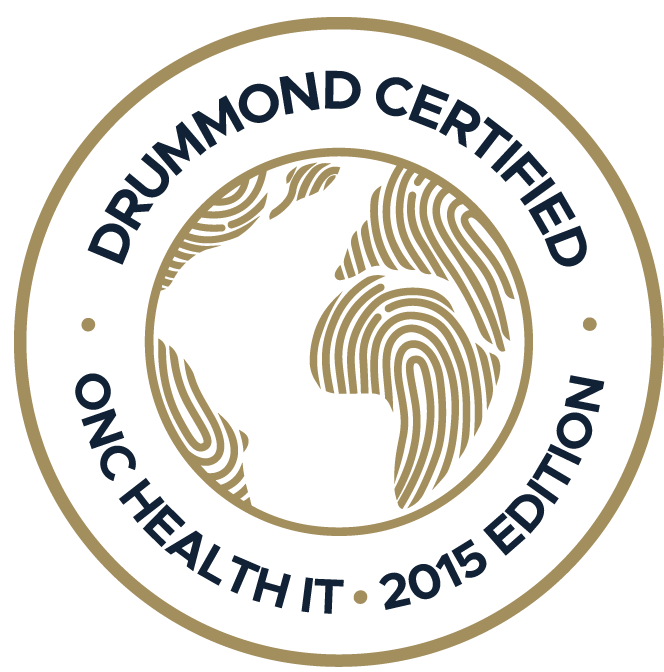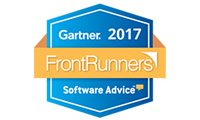Medicare Compliant EHR Software
Solutions for You Practice
Medicare is an immense insurance program that provides coverage to more than 38,000,000 seniors in America. Any clinician who wants to receive full reimbursement from Medicare, as well as the bonuses available through the Centers for Medicare and Medicaid Services, must meet the requirements for electronic health record (EHR) technology. A brief overview of Medicare and its incentive programs is key to receiving the maximum reimbursement on your Medicare cases.
Start Free Trial
Medicare Quick Stats
Official Title: Medicare
Year Enacted: 1965, under Title XVIII of the Social Security Act
Aliases: Original Medicare, Medicare Advantage Plan
Jurisdiction: Medicare Administrative Contractors
Most Recent Update to Medicare: Aug. 7, 2019 — Medicare moves to cover CAR-T therapy
Medicare Compliance and Enforcement: The Centers for Medicare & Medicaid Services (CMS)
What Is Medicare?
Medicare is an insurance program administrated by the federal government. It covers people ages 65 and over, and in some cases, includes younger people who have disabilities. Although CMS runs both programs, Medicare is not the same as Medicaid. Medicaid provides healthcare services to people of all ages, as long as they meet low-income eligibility.
Eligibility for Medicare has two requirements: Participants must be at least 65, and they must have been a citizen or permanent resident for the past five years. Those covered by Social Security disability insurance are usually eligible for Medicare enrollment after a waiting period of two years. People with severe terminal diseases like Lou Gehrig's disease or end-stage renal disease often qualify immediately.
What Does Medicare Cover?
Coverage under Original Medicare consists of Parts A and B. Medicare Part A covers inpatient care in hospitals or skilled nursing facilities, although it excludes custodial and long-term care. Part A helps with hospice and specific forms of home healthcare.
Medicare Part B — the most relevant for behavioral health providers — covers doctors' visits and a wide range of other medical services and supplies. Preventive services, ambulatory services, durable equipment, some outpatient prescription drugs and mental health coverage also fall under Part B.
Who Sets Standards and Regulations in Health Care?
As a patient under Medicare, people have defined protections that grant them the right to:
- Have providers treat them with respect and dignity at all times.
- Be free from discrimination based on race, color, national origin, disability, age, religion or sex.
- Have personal and health information kept private.
- Receive information from Medicare, healthcare providers and sometimes contractors in ways they understand.
- Receive understandable information about Medicare, such as what's covered, what the program pays and how much patients have to pay, to help make healthcare decisions.
- Receive answers to questions about Medicare.
- Have access to doctors, specialists and hospitals.
- Learn about their treatment choices in plain language.
- Participate in treatment decisions.
- Receive healthcare services in a language they understand, in a culturally sensitive manner.
- Receive Medicare-covered services in an emergency.
- Receive decisions about care payment and coverage of services or prescription drugs.
- Receive notice of what Medicare will and won't cover when they file a claim.
- Appeal decisions about healthcare payment, service coverage or prescription drug coverage.
- File complaints or grievances, including complaints about the quality of their care.
A compliant EHR can serve behavioral health clinicians well in adhering to these patient rights. For instance, an EHR that does not integrate with health information exchanges may not be able to deliver records information to a patient in the right format, constituting a violation of meaningful use requirements.
Common Medicare Violations for Behavioral Health Providers
There are many pitfalls to be aware of as a mental or behavioral health provider working with Medicare. The most common violations include:
- False claims
- Stark Law violations
- Self-referrals
- Anti-Kickback Statute violations
- Remunerations payments
- Medicare abuse
- Medicare fraud
- Phantom billing
- Patient Billing fraud
- Upcoding schemes and unbundling
- Exclusion Statute
- Discussing private patient information
- Illegal access of patient files, e.g., employees accessing details they are not authorized to see
Improper handling of patients' protected health information (PHI) is particularly dangerous, as it falls under the Health Information Portability and Accountability Act (HIPAA) of 1996. In 2019, fines for HIPAA violations can reach up to $1,500,000 annually for the largest providers. Other, fraud-based violations of Medicare have penalties ranging from fines in the tens of thousands to exclusion from participation in federal healthcare programs.
Frequently Asked Questions About Medicare
These common questions can help you get a better understanding of how the system works and what it does.
Both are federal programs that provide health coverage. Medicare covers people 65 and over and people under 65 who have a disability, no matter the person's income. Medicaid provides health coverage to low-income people and also has a state-run component.
Medicare Compliance and EHRs
To comply with Medicare, your organization needs to be using an EHR technology certified by the Office of the National Coordinator for Health Information Technology. Certified EHR technology has features that align with HIPAA requirements for security and privacy of patient information, such as:
- Individual user authentication
- Access controls
- Audit trails
- Protection of remote access
- Alarm and event reporting
- Strong encryption
Selecting an EHR with all these features will help ensure you stay on the right side of compliance and don't encounter any surprises if you ever get audited.
Secure Medicare Compliance with ICANotes
ICANotes is a fully customizable EHR designed to work seamlessly for behavioral health professionals. The suite of security features protects your patients' PHI from external threats and helps prevent breaches due to internal mistakes, all while reducing the burden of documentation for clinicians. If you'd like to learn how ICANotes puts you in compliance with Medicare incentive programs and regulations, register for a free trial or live demonstration of our revolutionary software.
More Resources on Behavioral Health Compliance
Why Narrative Behavioral Health Progress Notes Matter
Why Narrative Behavioral Health Progress Notes Matter: How ICANotes Makes Charting Effortless…
Read MoreInformed Consent and AI in Healthcare: Ethical Considerations for Behavioral Health Providers
Informed Consent and AI in Healthcare: Ethical Considerations for Behavioral Health Providers…
Read MoreCPT Code 96127: Guide to Mental Health Screening Reimbursement
What is CPT Code 96127 and How Does it Affect Your Income?…
Read MoreWhat Out-of-Network Providers Need to Know About Insurance
What Providers Need to Know About Out-of-Network Insurance Reimbursement Out-of-network providers are…
Read MoreRecent DSM-5-TR Updates
Recent DSM-5-TR Updates As a behavioral health professional, it’s essential to stay…
Read More6 Reasons Why You Should Avoid Medical Transcribing Services
6 Reasons Why You Should AvoidMedical Transcribing Services Amidst record rates of…
Read MoreAdding and Updating Digital Contact Information in NPPES
Behavioral health providers are no strangers to collaboration and patient file exchanges.…
Read MoreCMS-1500 Claim Form Guide: Accurate Billing for Behavioral Health Providers
A CMS 1500 form is a claim form you will often use…
Read MorePutting Together a Good Faith Estimate
Healthcare rules and regulations are constantly changing. In late 2021, Congress passed…
Read MoreComplete Guide to Mental Health & Behavioral Health Billing
Complete Guide to Mental Health & Behavioral Health Billing If you’re looking…
Read MoreIntuitive, Accessible, Time-Saving
ICANotes - the only EHR software that actually thinks like a clinician.















